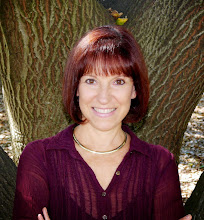 |
| Once again apples top the list as having the most pesticide residue in EWG's annual "Dirty Dozen" list. Follow Foods For Long Life on Facebook and Pinterest. |
Thanks EWG
For the last ten years, the Environmental Working Group (EWG) has taken data from the U.S. Department of Agriculture on pesticide residue and compiled a list of the most and least contaminated fruits and vegetables. I use this list to determine which produce should be purchased as organic and which conventionally grown produce is safe to eat. For example, I always buy organic apples, which often top the "Dirty Dozen" list and I rarely spend the extra money for avocados that top the "Clean Fifteen."
The Dirty Dozen Plus
The Dirty Dozen contain high concentrations of pesticides as well as a number of different pesticides. For example:
* Every sample of imported nectarines and 99% of apple samples had pesticide residue.
* Potatoes had more pesticides by weight than any other food.
* A single grape sample contained 15 pesticides.
* Single samples of celery, cherry tomatoes, imported snap peas, and strawberries showed 13 different pesticides each.
Here's the list of the Dirty Dozen:
Apples
Strawberries
Grapes
Celery
Peaches
Spinach
Sweet Bell Peppers
Nectarines
Cucumbers
Cherry Tomatoes
Snap Peas
Potatoes
Dirty Dozen Plus includes:
Hot Peppers
Kale/Collard Greens
Kale, collard greens, and hot peppers were found to be frequently contaminated with insecticides that are toxic to the human nervous system. But don't skip the greens, just make sure that you either buy organic or do what I do and grow them in your own garden.
The Clean Fifteen
This produce is the least likely to be contaminated with pesticide residue. For example:
* Only 1% of avocado samples had detectable residue.
* 89% of pineapples, 82% of kiwi, 80% of papaya, 88% of mango, and 61% of cantaloupe had NO residue.
* No fruit sample on the Clean Fifteen tested positive for more than 4 types of pesticides.
* Only 5.5% of the Clean Fifteen vegetable samples had 2 or more pesticides.
Here's the list of the Clean Fifteen:
Avocados
Sweet Corn
Pineapples
Cabbage
Frozen Sweet Peas
Onions
Asparagus
Mangoes
Papayas
Kiwis
Eggplant
Grapefruit
Cantaloupe
Cauliflower
Sweet Potatoes
Pesticides in Baby Food
The U.S. has no special rules for pesticide in baby food even though infants are far more vulnerable to harmful chemicals. Because of this fact, the European Commission has set a limit of no more than 0.01 parts per million of ANY pesticide in baby food.
In 2014 the USDA monitored samples of applesauce, carrots, peaches, and peas sold as baby food.
 |
| Babies are the most vulnerable to harmful pesticides. |
Results of USDA baby food testing
5% of peach baby food samples had 10 different pesticides.
1/3 of peach baby food samples failed European guidelines.
18% of applesauce samples contained acetamiprid*.
17% of applesauce samples contained the fungicide carbendiazim.
Apple juice samples contained six different pesticides.
14% of apple juice samples contained DPA**
Samples did not show significant residue in carrots and peas
*Acetamiprid is a neonicotinoid pesticide that could disrupt the developing nervous system.
** DPA is a pesticide that was banned in Europe in 2012.
To be safe, I would encourage parents to purchase organic baby food, especially those containing apples, peaches or anythng made from produce listed on the Dirty Dozen list. You can also grind or blend your own baby food from organic produce or that grown from your own organic garden.
Nursing mothers should consume organic fruits and vegetables, especially those listed on the Dirty Dozen, to prevent pesticides from contaminating their breast milk.
Thanks to the Environmental Working Group for their continued good work!












2 comments:
Thank you so much for this post. I'm forwarding it to my daughter with two babies. How can food manufacturers be so irresponsible?!
I am quite amazed that the US has no baby food standards, especially after seeing their own test results. We have to continue to take matters into our own hands!
Take care,
Joanne
Post a Comment